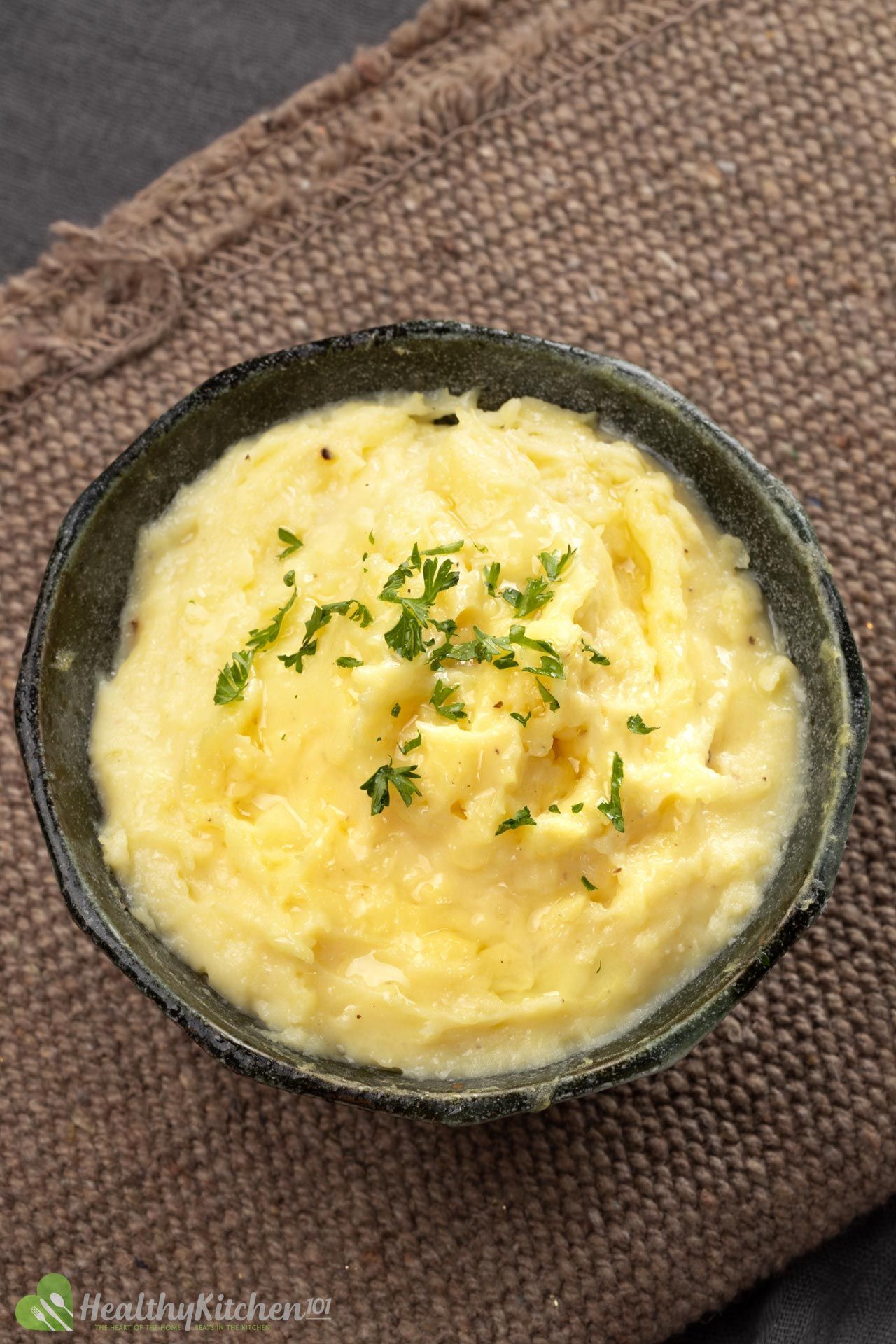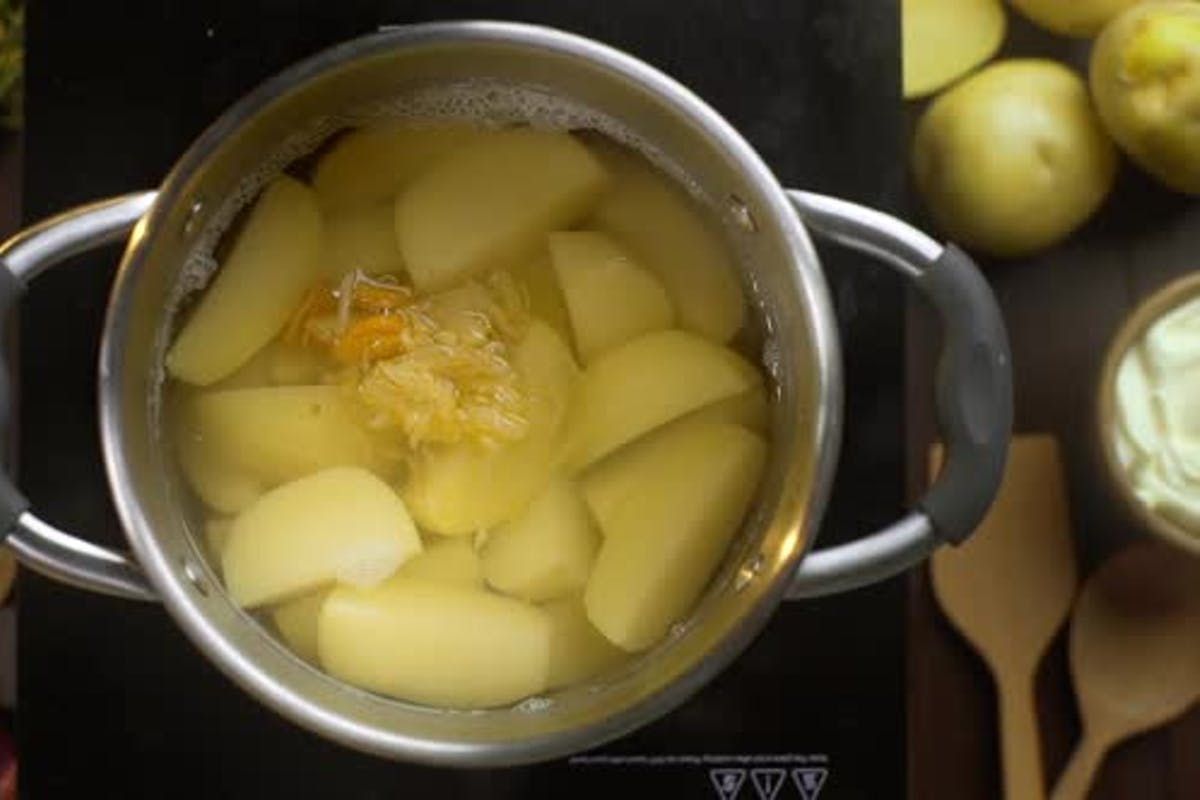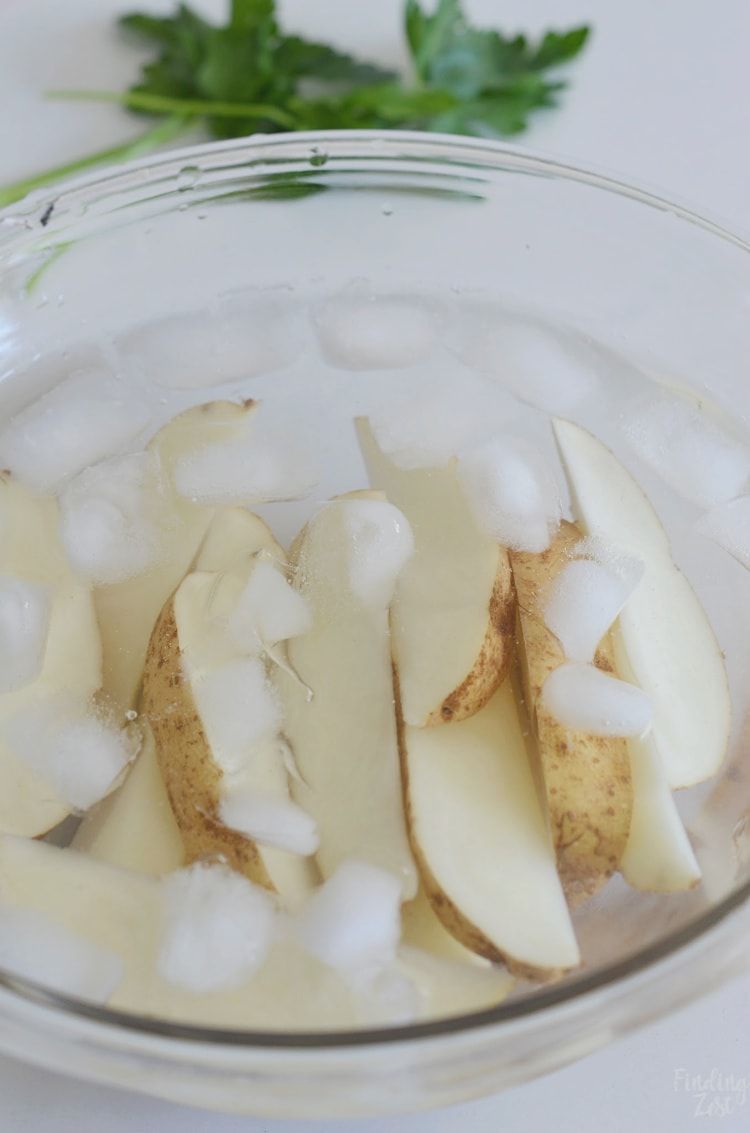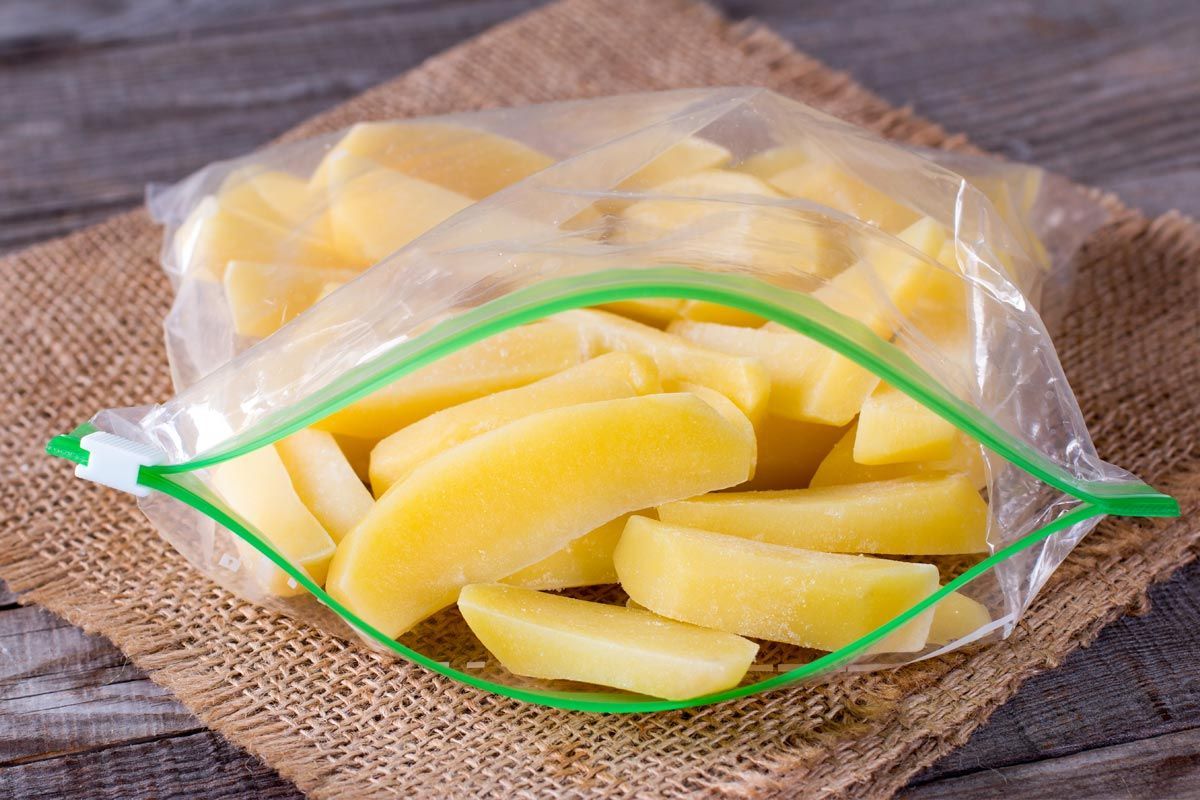Our recommendations are made independently. We may receive commissions from purchases made via our links.
Can You Freeze Potatoes
Can you freeze potatoes? Absolutely. It’s fairly easy to do, too. This guide will give you all of the information you need.
“Can you freeze potatoes?” is a pretty common question posed by home cooks. With potatoes being such a staple, it’s not rare to find some errant fresh ones in the pantry.
If you’re stumped on whether you should throw them into the freezer or not, this guide can help.
Can You Freeze Potatoes?
The short answer is, yes, potatoes are completely safe to freeze. Not just your average white potatoes, but variants like sweet potatoes are freezer-safe, too.
As long as you freeze and store them properly, they should not pose any kind of health risk whatsoever.
1. Can You Freeze Raw Potatoes?
Raw potatoes aren’t commonly frozen because they can last fairly long without further processing. When stored in a pantry, raw potatoes can last for up to a week. That’s ample enough time for most people to plan a recipe or two ahead to use them up before they spoil.

Once cooked, potatoes can spoil quicker. Only a few hours at room temperature and they will go bad. You can extend them by refrigerating them. Cooked potatoes can spend as long as 4 days in the fridge before they have to be discarded.
If you want to preserve potatoes for months at a time, your best bet would be freezing. Frozen potatoes can maintain a decent quality for 10 to 12 months.
2. Mashed Potatoes?
Mashed potatoes are commonly mixed up with additional ingredients such as cream or cream cheese. They help stabilize the potatoes and allow them to maintain their overall texture throughout the freezing process.
And yes, with regard to, it is completely okay to freeze leftover mashed potatoes for later consumption.

3. Cooked Potatoes?
It is also safe to freeze cooked potatoes if you have some lying around. However, there is going to be a slight change to their texture once frozen. When you do finally thaw them out, the potatoes will adopt a rather soft, mush-like texture.
Fortunately, the softness can be minimized. Before freezing, try to squeeze as much air as possible out of the plastic bags in which they are stored. This will help the potatoes maintain their texture for longer (but not indefinitely, mind you).
4. Baked Potatoes?
Because baked potatoes often have plenty of extra ingredients (cream, cheese, and even stuffing), they are a bit more complicated to freeze. Nonetheless, it is not impossible.
Baked potatoes can be frozen for up to 3 months. You can open up the container, thaw, and reuse them anytime during this period.

How to Freeze Potatoes?
1. How to Freeze Raw Potatoes
Raw potatoes are made up of 80% water. As a result, if you try to freeze them raw, their high water content can turn them mushy or even grainy. So, the trick here is to partially cook them first before freezing. You can achieve this by blanching the potatoes.
Washing & Preparation

First, carefully wash your potatoes under running water to eliminate stuck-on dirt or residue.
You can peel the skin off the potatoes or leave it on, depending on your preference.
Cut your potatoes into large wedges. They will be quicker to cook that way.
Blanching
Next, bring out a large pot, fill it up with water, and bring to the boil on the stovetop.
While the pot is boiling, prepare a large bowl filled to the brim with ice water. The ice water will help stop residual heat from fully cooking the potatoes once you finish boiling.

When the water inside the pot starts to steam, dip your potato wedges into the water and cook for about 5 to 7 minutes. To check whether the potatoes are done or not, take a bite out of a random wedge. When finished, the wedges should be soft on the outside, but tough on the inside (al dente).
Once the wedges have reached a desirable consistency, fish them out of the water and dip them into the ice bowl. The cold temperature will rapidly cool down the potato wedges and eliminate the residual heat.
Let the potatoes cool for approximately 2 or 3 minutes. Strain excess water using a colander.
Freezing

Arrange the cooled potato wedges onto a parchment paper-lined baking sheet in a single layer. Do not let the wedges touch one another, as they can stick and form clumps.
Put into the freezer and freeze overnight (about 5 to 6 hours).
Check on the potatoes in the morning. If you’re happy with the result, put the wedges into resealable plastic bags. Clearly label each bag with the name and the packaging date.
Return the bags to the freezer for storage.
2. Mashed Potatoes
Like we mentioned earlier, because mashed potatoes typically contain extra stabilizing ingredients like cream and cheese, they freeze very well. Just place your leftover mashed potatoes into resealable plastic bags, put them into the freezer overnight, and you’re done.
3. Cooked Potatoes
Cooked potatoes are already treated, so you don’t need to go through all of the steps to prepare or blanch them. Instead, just set them on the baking sheet and freeze overnight. Package and store them in the same manner as you would a raw potato.
4. Baked Potatoes
Similar to mashed potatoes, baked potatoes often have extra ingredients in the mix like sour cream, cream cheese, and even meat. Therefore, it is going to take a bit of effort to prepare them for the freezer.
Take each potato and wrap them up with either aluminium foil or freezer-safe plastic wrap. Once wrapped, place them into resealable plastic bags (try to squeeze as much air out of the bags as possible).

Put them into the freezer to freeze overnight. They should be completely frozen the morning after.
Baked potatoes, frozen and stored in this manner, will be safe to eat for up to 3 months.
Conclusion
Now that you know the definitive answer to the “Can you freeze potatoes?” question, no need to be anxious anymore. Just take whatever you have, prepare, and freeze away.





